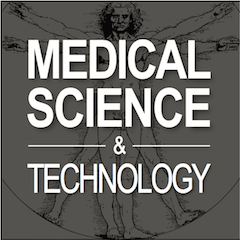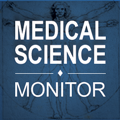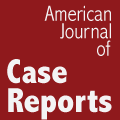Rhesus antigen: Influence on infarct size and risk factors
Maryam Sotoudeh Anvari, Mohammad Ali Boroumand, Marayam Soleymanzadeh, Mehran Mahmoodian, Elham Hakki Kazazi, Masumeh Lotfi-Tokaldani, Seyed Hesameddin Abbasi
Med Sci Tech 2011; 52(3-4): RA87-90
ID: 882236
Available online:
Published: 2012-01-11
Background: Measuring myocardial markers, such as CK-MB and Troponin-T (Tn-T) is a valuable method for determination of acute myocardial infarction (AMI). Few studies have focused on the association between Rh antigen and size of infracted areas.
Material/Methods: We analyzed 947 patients with acute myocardial infarction between May 2007 and July 2009 to determine the association between ABO blood group and Rh antigen and the extent of necrotic area after myocardial infarction.
Results: The frequencies of blood groups and Rh groups were: A group (34.3%), O group (33.2%) B group (22.9%), AB group (9.6%), Rh+ (90.1%) and Rh- (9.9%). CK-MB levels and infarct size were significantly higher in patients having Rh+ antigen. No such relation was detected between Troponin T levels. Rh- patients had significantly more risk factors for MI than their Rh+ counterparts. Hypertension and dyslipidemia were significantly different in our Rh- antigen. (P=0.002 and P=0.03) Age and fasting blood sugar (FBS) showed no significant difference between Rh+ and negative groups. CK-MB level was markedly higher in male patients than in females.
Conclusions: Our findings indicate that existence of Rh antigens may have significant relation to the extent of myocardial necrotic area.
Keywords: Blood group, CK-MB, Tn-T, Rhesus antigen, acute myocardial infarction, Blood group, Rhesus antigen



